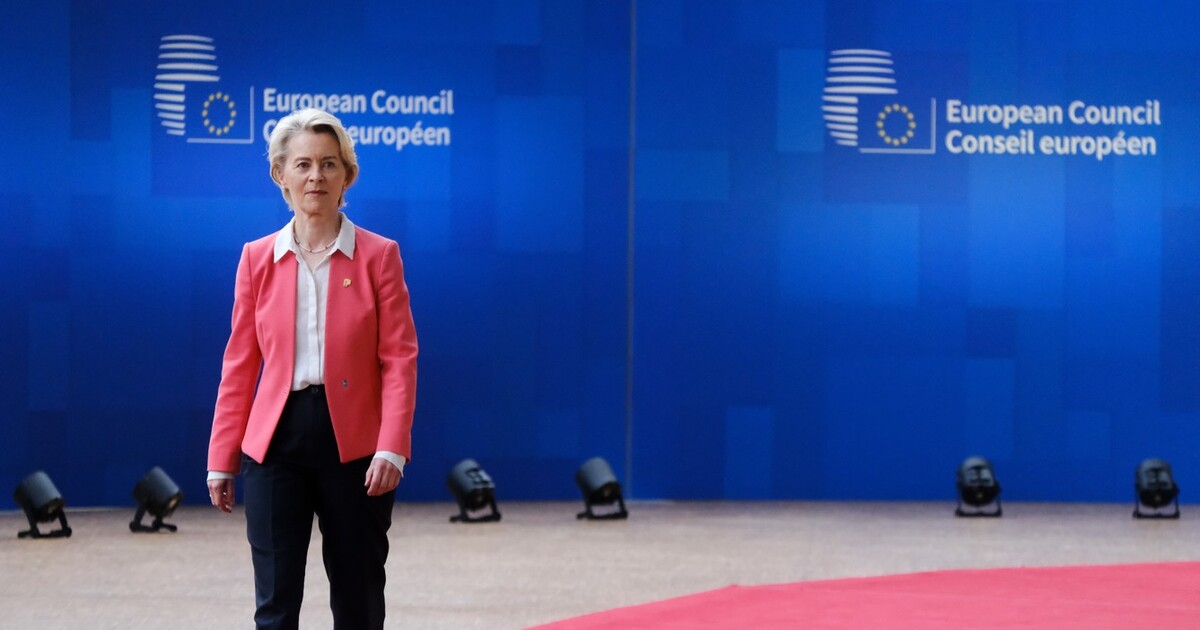Rising Global Dangers and European Silence
The failure of leading Western European governments to stand up against Trump’s outrages poses exceptional dangers.
November 23, 2025

A Strategic Assessment Memo (SAM) from the Global Ideas Center
You may quote from this text, provided you mention the name of the author and reference it as a new Strategic Assessment Memo (SAM) published by the Global Ideas Center in Berlin on The Globalist.
Unless checked, the world is heading into a period of increasing authoritarianism. This means more kleptocracy, more public corruption and more money laundering.
In such a world, organized crime will expand, as will violence and the potential for transnational conflict.
As President Trump marches ahead with policies that are increasingly undermining global security and the rule of law, there is scant pushback from the United States’ partners in the G7 (other than Canada and Japan, mostly European: France, Germany, Italy, the UK, plus the European Union). They are largely silent.
Extortion and threats
President Trump continues to extort nations in trade negotiations, embraces and encourages authoritarian leaders, while he dismantles U.S. systems that curb domestic and foreign corruption.
He is using the U.S. Navy to threaten Venezuela. He has talked of bombing Nigeria. He has just agreed to supply Saudi Arabia with the most sophisticated military aircraft that the U.S. manufactures. And, he appears to be selling-out Ukraine to Putin – maybe the one issue where Europeans will have the courage to oppose Trump.
Western governments are mostly bowing to Trump’s bullying and adapting their priorities given their correct conclusion that the United States is no longer a reliable strategic partner. Accordingly, several of these governments are boosting defense outlays and cutting foreign aid spending.
The dangers are formidable. If there is going to be meaningful resistance to Trump’s dictatorship, then it may emerge domestically in the United States, rather than from the G7, let alone from the G20 — Trump just boycotted the G20 Summit in South Africa.
Curbing civil society
The impact of U.S. policies and, to a considerable degree, the silence of the other leading democratic industrial countries was evident in recent multi-day Zoom meetings of hundreds of activists in the anti-corruption organization Transparency International (I am a co-founder) with its national chapters in 110 countries. The single gravest concern is the mounting harassment by governments.
I have colleagues in a number of countries who could be arrested and jailed tomorrow, or the day after. If I name them here, then the risks to their lives will only increase.
Media intimidation is rising and no wonder when Trump daily castigates U.S. journalists with vile language, extorts funds from U.S. media organizations and even launches a massive legal suit against the BBC.
Authoritarian leaders everywhere are noticing and no doubt feeling emboldened. Across Central and Eastern Europe and in developing countries around the world, journalists and civil society activists are being censored and intimidated on a vast scale. What about the leadership of the United Nations and numerous governments of Western democracies? They remain largely silent.
Abandoning corruption laws
Participants In the Transparency International meetings were deeply concerned about the signals that Trump sends to bribe-paying businesses and bribe-taking government officials around the world, as he suspends enforcement of the Foreign Corrupt Practices Act, which has made corporate bribery of foreign government officials a crime. There are no signs of any enforcement increases of similar laws by European countries.
Similarly, anti-money laundering laws and regulations in the United States appear to be largely suspended and it looks as if European financial regulators are being careful in this area not to antagonize Trump.
For example, in recent days, BaFin, the German banking sector regulator, announced that it was imposing a record fine of 45 million euros on JP Morgan Chase — the United States’ largest bank with more than $4.2 trillion in assets under management. The fine is so tiny that perhaps Jamie Dimon, Chase’s chairman and chief executive, who regularly talks with Trump, may not even notice it.
Crypto-finance scams
Trump’s embrace of cryptocurrencies and the across-the-board relaxation of regulations of crypto, as well as the abandonment of investigations of U.S. crypto-businesses, add to the concerns about rising money laundering.
His decision to pardon two prominent crypto operators, who have both been involved in investments in Trump family businesses, sends a dangerous signal.
To be sure, there are still some prosecutors in the U.S. Department of Justice who are continuing to prosecute crypto-related crimes. Recently, the Department seized Bitcoin valued at around $15 billion, alleging that these are proceeds of international scams organized by a mysterious Cambodian-based group known as Prince Holding Group.
Its chief executive, Chen Zhi, also known as Vincent, 37, was charged in absentia in a New York court.
Evolving resistance
Veteran journalist George Packer, writing in The Atlantic, worries that many Americans are giving up, or have already given up, on democracy as they see a nation where now:
“the Supreme Court puts the president above the law, the president uses his office for shakedowns, the White House defenestrates speakers of inconvenient facts, the State Department flirts with dictators while shutting the door on dissidents and refugees, Justice Department lawyers lie to the courts, Congress votes liars onto the bench and pours money into a masked secret police force.”
Nevertheless, there are solid indications now that domestic resistance to Trump is evolving. Recent elections in New Jersey and Virginia saw powerful victories for Democrats.
The latest opinion polls show sharp recent declines in public perceptions of how Trump is managing the economy, while actions by Trump to cover up the abuses of pedophile Jeffrey Epstein brought a major rebuke by Republicans and Democrats in the U.S. Congress.
Opposition leaders
While the Democrats have yet to find a champion to oppose Trump, many judges across the United States are showing courage in taking decisions that reject many of Trump’s actions. They are forcing the Supreme Court to decide on a record number of appeals from the administration. This is placing an unprecedented burden on the nine justices to determine the future of this country’s governance.
A group of Democratic Party members of Congress, all of whom have served in the military, have made a video calling on U.S. military officers to refuse orders that may involve them in illegal actions.
President Trump has called these Democrats “traitors.” He says they should be hanged. But their message may resonate widely at a time when Trump plans to deploy the military to an increasing number of U.S. cities to support his immigrant-deportation operations.
Conclusion
Domestic resistance to Trump may reach a decisive point in the Congressional elections in November 2026. But at the pace that Trump is going, the prospects that he could do far more damage in the next 12 months are formidable.
As civil society activists concerned with promoting democracy, human rights and the rule of law are now so acutely aware in many parts of the world, the failure of leading West European governments to stand up against Trump’s outrages poses exceptional dangers.
West European policies are urgently needed to boost enforcement of anti-corruption and anti-money laundering laws and regulations. They are vital to offset the large numbers of deaths in the poorest nations that result from Trump’s aid cuts. And they are essential to counter the repression of civil society organizations and media.
Takeaways
The world is heading into a period of increasing authoritarianism. This means more kleptocracy, more public corruption and more money laundering.
As President Trump marches ahead with policies that are increasingly undermining global security and the rule of law, there is scant push-back from the U.S.‘s partners.
Western governments are mostly bowing to Trump’s bullying and adapting their priorities given their correct conclusion that the U.S. is no longer a reliable strategic partner.
If there is going to be meaningful resistance to Trump’s dictatorship, then it may emerge domestically in the U.S., rather than from the G7, let alone from the G20.
West European policies are urgently needed to boost enforcement of anti-corruption and anti-money laundering laws and regulations.
A Strategic Assessment Memo (SAM) from the Global Ideas Center
You may quote from this text, provided you mention the name of the author and reference it as a new Strategic Assessment Memo (SAM) published by the Global Ideas Center in Berlin on The Globalist.


